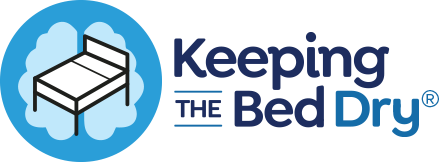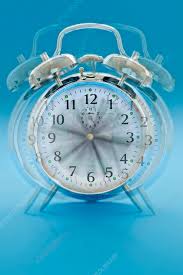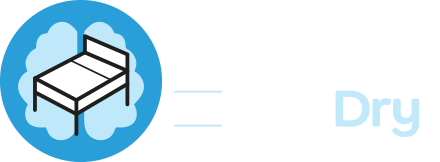This is a far more complicated question than you might think.
Not only are there the obvious financial costs—which are what most people consider first—but there are also significant costs to a family’s time and, most importantly, to their emotions.
First, you may know that I don’t like to use the “w” word (wet) because it feels negative to me. As my mentor, Michael Yapko, PhD, says, “What you focus on, you amplify.” So, if I tell you, “Don’t think of a white horse. Don’t think of a white horse. Don’t think of a white horse,” what are you thinking about right now? A white horse, of course! Similarly, if you were to say, “I want to stop bedwetting,” then you’re focusing on being wet and not being dry.
So, I prefer to have my patients focus on being dry!
Financial Costs
Depending on the treatment approach to treating bedwetting, the costs will vary. But these are some of the common financial costs associated with trying to get dry.
- Pull-ups: Approximately $30/month or $360/year
- Laundry detergent and energy costs associated with repeatedly washing sheets: Approximately $46/month $552/year
- Medication: DDAVP, 0.2 mg/1–3 tabs/night: $82–$500/month without insurance; less with a copay
- Enuresis alarm: Between $30 and $400
- Sub-specialist clinician visits (1–2 appointments): Approximately $30 copay (with insurance) and $100-$200/visit without
Given these estimates, the annual cost for treating a child with nighttime enuresis can be as much as $1,715. That’s no small amount, particularly given the fact that most families live paycheck to paycheck. This factor can add additional stress to an already difficult situation.
Time Costs
Beyond the financial is a cost that is harder to pin down: time. From stripping the bed, to running the washing machine and dryer, to making the bed again, to the time spent being awakened and tending to your child personally after a nighttime episode, bedwetting takes up a lot of your time.
How much time, exactly? Obviously, this varies from family to family, but let’s say a conservative estimate is 40 minutes a day, from the time you wake up till the time you get back to bed after cleaning up your child and their bed. That really adds up! And the impact on your regularly disrupted sleep is significant as well.
Imagining the other activities you could do with an additional 40 minutes (though you wouldn’t typically do a lot of these in the middle of the night) illustrates the impact nighttime bedwetting makes on your precious time:
- Extra sleep
- Sports
- Reading
- Studying/doing homework
- Painting, dancing, or playing a musical instrument
- Relaxing
- Playing
- Watching television
Emotional Costs
But the most significant of all the costs related to nighttime bedwetting are the emotional costs. These can be devastating to your child (and sometimes even to you parents). Some of the most common emotional costs I observe in my patients are:
- Loss of self-esteem.
- Loss of self-confidence.
- Embarrassment, humiliation, and shame:
- This often occurs when their peers find out about the problem.
- Often, these boys and girls have younger siblings who are already dry.
- Sadly, family members sometimes tease these children.
- Even worse, sometimes parents make their sons or daughters feel shame.
- Guilt:
- About the money it costs to wash the sheets.
- About the extra water it requires, since these kids care about the environment.
- About the extra time it takes their parents to take care of cleaning up a nighttime accident.
- Fear of other kids finding out.
“Nocturnal enuresis is one of the more frequent and, for the children, the most critical problem they encounter in their lives.”
Dalia Spisak, RN, MSN, CPNP
Pediatric Urology Nurse Practitioner, Retired
The effects of these costs run deep and often last years after the bedwetting has ended. Being particularly aware of and sensitive to this fact is essential for anyone interacting with a child who struggles with this.
The Bedwetting Solution
Keeping the Bed Dry®, is a comprehensive online streamed home video series that incorporates medical hypnosis as a solution. I have taken my years of working one-on-one with children and adolescents—and coaching their parents—and distilled down all my most effective bedwetting treatment techniques into an easy-to-understand video series that you can do in the privacy of your own home. And, most importantly, you can actually achieve results quickly without medication or alarms!
Using medical hypnosis—which is similar to visualization or guided meditation—your child can learn how to overcome their challenge and acquire a skill that they can carry with them into adulthood that can be applied to countless life circumstances.
Imagine your child waking up dry every day. How will their life—and yours—be different? When I ask my patients and their parents this question, they often say:
- I’ll be able to confidently go to sleepovers!
- I won’t have to change the sheets every day.
- I won’t be sleeping in pull-ups anymore.
- I’ll be more self-confident.
- I’ll feel better about myself.
- No more smelly sheets.
- I won’t feel like a baby.
If you’re ready for your child to start being dry as early as tonight, click here to get your program.








